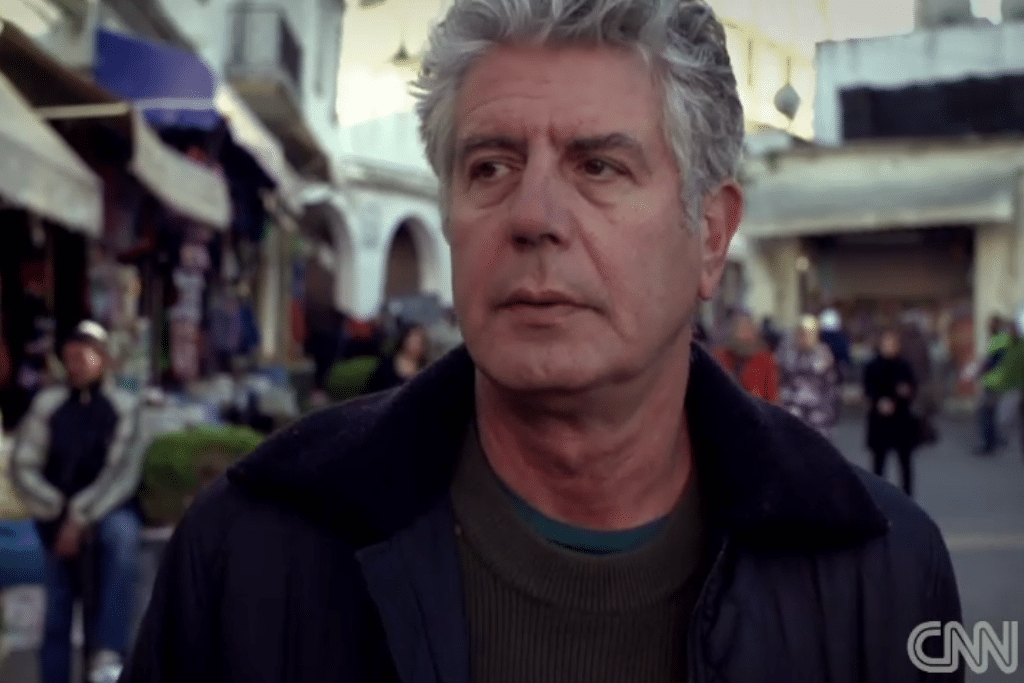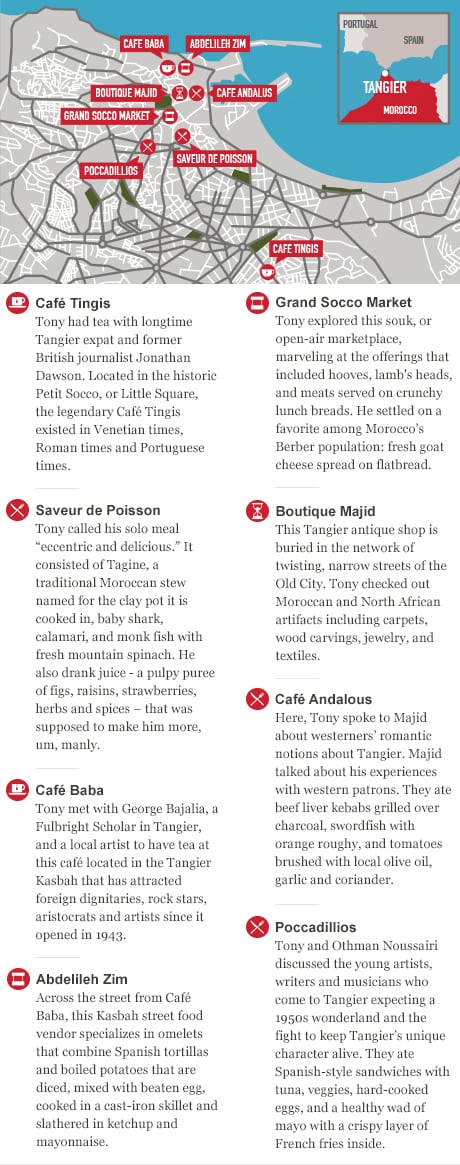Anthony Bourdain’s “Parts Unknown” episode 5 recap: Imaginary Tangier

Skift Take
In episode 5 of Parts Unknown, Bourdain goes in search of a dream city, a city described by one journalist as "a Moroccan city with an European outlook."
Bourdain takes Tangier, what is considered by some savvy travelers as a dingy dangerous port city, and transforms into a poetic destination visited by inspired minds looking to escape the doldrums of society.
Bourdain accredits novelist and composer Paul Bowles for "creating a romantic vision of Tangier that exists even today, a dream that has become almost inseparable, in the minds of many, as reality.”
Bourdain does a bit of his own soul searching as he works out the truth of Tangier with British journalist Jonathon Dawson. Bourdain says, "the notion of living a life apart, of being somewhere else, there are those who like that feeling... I like that feeling.”
Tangier is, at its core, a port city and rich fishing ground where fishers use weighted nets to pull critters from the bottom of the sea.
Bourdain has his first taste of said fish in the traditional Moroccan stew, tangine. The fish, or in some cases meat or vegetables, is cooked in a house medley of dried herbs in a clay pot over charcoal. The dish reminds Bourdain of the foodie trend taking over his home city of New York, describing the dish as "the tangier version of farm-to-table."
Hopped up on words
He then delves into a discussion of literary geniuses and drugs of a level that the audience has yet to see on Parts Unknown.
Bourdain revels in the details of Tangier's drug-laden history and goes so far as to organize a live demonstration of the making of majoon, a dessert made of THC, butter, chocolate, honey, and nuts.
"Of course, network standards prohibit me from even tasting this delicious and reportedly mind-altering treat, I'm guessing any way," quips Bourdain. "So until I see Chris, John, and Wolf doing bong rips in the Situation Room, I will of course abide by these rules, because that's the kind of guy I am."
Is Bourdain being seriously mature or just facetious? We’ll never known in a country where smoking pot or hashish is described as "a functional part of daily life."
The many faces of Tangier
Bourdain goes on to eat with a diverse set of characters, which includes a family-style feast with a “4,000-year-old rock band" and a Spanish tortilla with too much mayonnaise with Fullbright Scholar George Bajalia.
He also gets insight into how ridiculous many western tourists act in Morocco while enjoying a lunch of swordfish and grilled tomatoes with Majid, the owner of an antique shop in the Old City.
Bourdain asks, "So how else have things changed?" to which Majid answers, "[tourists] are afraid if they make eye contact that I'm going to rip you off…They don't even say hello...or buy. We call them penguins. They have short hands, doesn't get to the pockets.”
As the episode nears its end, Bourdain attends a garden party with a group of colorful guests from America, Chile, Scotland, and more. It is exactly the type of hashish-smoking aristocratic group of translators and artists that you'd expect to find around a white table linen on a sunny afternoon, a few miles outside an imaginary city.
An elder American woman who has lived in Tangier for decades describes the city's high tolerance for behavior as, "You can do what you want if you do it with good manners."





